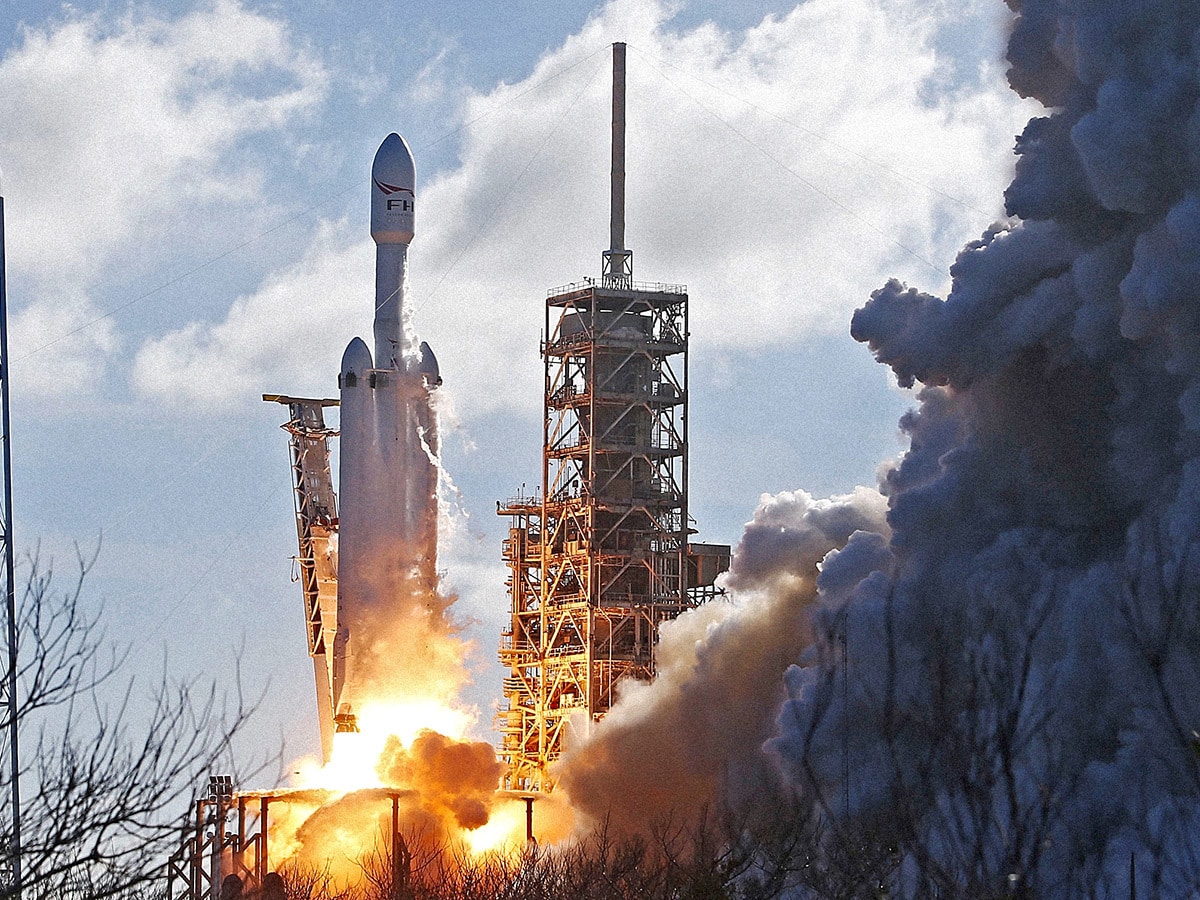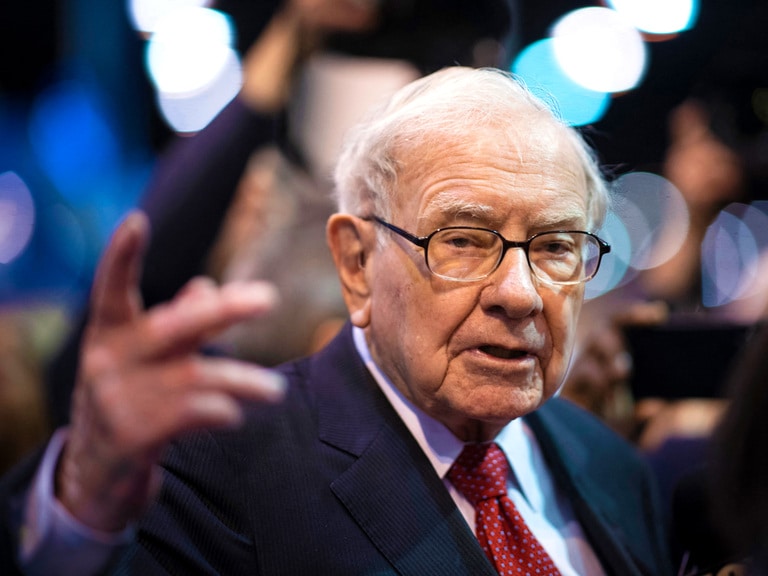There’s an unexpected destination on the mind of the world’s billionaires at the moment — the vast expanse of space. Sir Richard Branson’s Virgin Galactic [SPCE] is pioneering human spaceflight.
Before the coronavirus pandemic struck, it was set to launch its first-ever commercial space tourism flight, in its ship called Unity, later this year. Not to be left out, Amazon [AMZN] founder and CEO Jeff Bezos is also aiming for space commercialisation with Blue Origin.
The short trips will likely be similar to Branson’s venture and will carry a similar price tag. Meanwhile, the New York Times suggests rival Elon Musk’s SpaceX will offer a much more expensive trip — a 10-day stay on the International Space station thanks to a SpaceX capsule.
The company’s rockets are already busy sending satellites into orbit and cargo to the International Space Station, but its long-term aim is colonising Mars.
Despite some high-profile failures, where billionaires boldly go, investors are increasingly following. Last year, space startups received $5.7bn in investor financing — up from $3.5bn in 2018 — according to a survey from Bryce Space & Technology.
SpaceX and Blue Origin received a combined $1.9bn and OneWeb (backed by Softbank [9984], which also builds satellites to provide broadband), took in $1.25bn. Also in investors’ sights is US small rocket maker Relativity Space.
$5.7million
Amount of funding space startups received in 2019
The final frontier
Following its $12 IPO in October last year, Virgin Galactic largely failed to get off the ground. But in 2020, the company briefly went stratospheric.
An uptick in deposits for tickets ahead of its fourth-quarter results on 25 February helped its stock reach $42.40 in late February before it crashed back to earth.
At the time of writing, the stock was resting around $17. Short-sellers were emboldened when Virgin Galactic reported a wider than expected $55m loss and sales of $529,000, short of the $1.78m estimates.
Indeed, about 30% of the free float had been shorted, according to IHS Markit data. However, investors — including hedge funds such as Suvretta Capital Management — remain bullish about the group’s long-term prospects as it sets its sights on $600m of yearly revenue by 2023.
Furthermore, Adam Jonas, an analyst at Morgan Stanley, recently upgraded the stock to overweight with a price target of $24.
He said Virgin Galactic had a “healthy cash position” of around $500m with 8,000 customer registrations of interest. He also highlighted its hypersonic point-to-point air travel opportunity.
The company has forecast revenues of $1.4bn and EBITDA of $690m by 2030.
$1.4billion
Virgin Galactic's forecasted revenue by 2030
Morgan Stanley is also cheered by the expected growth in the space economy driven by a 12% year-on-year increase in NASA’s budget.
It sees growth in demand for rovers, launchers, robotic explorers and satellite broadband helping the $360bn global space industry reach $1trn by 2040.
Another interesting element is that Virgin Galactic is debt-free (although The Motley Fool notes it does have $7.2m worth of financial obligations). The debt-free nature of Virgin Galactic does look promising for the company, as it allows for near unencumbered growth.
SpaceX, meanwhile, may be contemplating an IPO of its space-internet business Starlink, according to comments from SpaceX CEO Gwynne Shotwell, in February.
The company aims to deliver internet services from its network of satellites to US broadband customers this year.
Morgan Stanley expects SpaceX to play a large part in scooping up broadband subscribers and benefiting from hypersonic air travel and deep space exploration.
It values the company at $50bn. However, SpaceX itself is unlikely to go public before it is transporting paying customers to Mars.
That may be a while off yet, but investor appetite for it and other non-listed stocks has already taken off.
Investments take to orbit
Jonas of Morgan Stanley raised concerns that the coronavirus may impact demand from those seeking luxury experiences, saying “astronauts may reconsider discreet spending” because of the weaker economic backdrop.
Helal Miah, investment research analyst at The Share Centre, tells Opto that growth sectors and stocks have taken a battering from the pandemic, but believes the long-term prospects of many companies in the space industry largely remain intact.
The exorbitant price is so far being carried by only a few wealthy individuals, yet as costs come down and safety increases, so will the number of willing travellers, he thinks.
However, there is promise for private companies in another form. “NASA’s ditching of the costly Space Shuttle has led to private companies such as SpaceX and Blue Origin rushing to fill the void,” Miah explains.
“NASA is now only interested in using these private companies as a taxi service to space to enable them to focus on cutting-edge exploration and space research.”
“NASA is now only interested in using these private companies as a taxi service to space to enable them to focus on cutting-edge exploration and space research” - Helal Miah, investment research analyst at The Share Centre
Such projects, he considers, present massive opportunities for the private sector. “At the moment, these companies may not be profitable, but they will be when costs fall.”
Miah advises investors to “drip-feed” money into the market through ETFs such as the Procure Space ETF [UFO].
The neatly named fund takes in Virgin Galactic, communications firm Intelsat [I] and satellite and space robotics maker Maxar Technologies [MAXR], which he says are resilient.
“SpaceX and other private rocket companies have had many failures already, but it is a learning process and they are making steady progress.”
“SpaceX and other private rocket companies have had many failures already, but it is a learning process and they are making steady progress” - Helal Miah
Disclaimer Past performance is not a reliable indicator of future results.
CMC Markets is an execution-only service provider. The material (whether or not it states any opinions) is for general information purposes only, and does not take into account your personal circumstances or objectives. Nothing in this material is (or should be considered to be) financial, investment or other advice on which reliance should be placed. No opinion given in the material constitutes a recommendation by CMC Markets or the author that any particular investment, security, transaction or investment strategy is suitable for any specific person.
The material has not been prepared in accordance with legal requirements designed to promote the independence of investment research. Although we are not specifically prevented from dealing before providing this material, we do not seek to take advantage of the material prior to its dissemination.
CMC Markets does not endorse or offer opinion on the trading strategies used by the author. Their trading strategies do not guarantee any return and CMC Markets shall not be held responsible for any loss that you may incur, either directly or indirectly, arising from any investment based on any information contained herein.
*Tax treatment depends on individual circumstances and can change or may differ in a jurisdiction other than the UK.
Continue reading for FREE
- Includes free newsletter updates, unsubscribe anytime. Privacy policy





